The change in strategy from Google was revealed this week by BusinessWeek, as the search giant has reportedly made an effort to stop unnecessary tweaks to the Android software, as well as partnerships for products that compete with Google, like Microsoft Bing. Companies who want to stay in Google's good graces and be among the first to receive new builds of Android to create hardware will need to be given approval for changes from Andy Rubin, the company's vice president of engineering.
Google's recent moves are characterized as "far more discriminating" than they were at first: The company reportedly gives a "head start" to device and chipmakers who "abide by" Google's rules for Android. Google is looking to maintain momentum for Android as its presence on a wide range of device has helped it to overtake Apple's iOS in terms of platform-specific marketshare.
The new approach aims to address a trend with Android known as fragmentation, where handset makers and carriers begin to modify and change the open source Android platform to such an extent that basic features of the operating system are removed or drastically changed.
In one of the more extreme examples, the Samsung Fascinate handset for Verizon features Bing as the default and only search option on the device. The report cited two people who said that Google has tried to "hold up" the release of Verizon Android devices that use Bing.
"Over the past few months, according to several people familiar with the matter, Google has been demanding that Android licensees abide by 'non-fragmentation clauses' that give Google the final say on how they can tweak the Android code — to make new interfaces and add services — and in some cases whom they can partner with," authors Ashlee Vance and Peter Burrows wrote.
"Google's Rubin says that such clauses have always been part of the Android license, but people interviewed for this story say that Google has recently tightened its policies. Facebook, for example, has been working to fashion its own variant of Android for smartphones. Executives at the social network are unhappy that Google gets to review Facebook's tweaks to Android, say two people who weren't comfortable being named talking about the business."
The report characterizes handset makers who are in Google's good graces as part of a "club" that sees benefits, such as exposure and sales for partners like HTC, Qualcomm, Nvidia and Motorola who worked with Google to create hardware like the Nexus One or Xoom tablet. Those on the outside, like Dell and Acer, aren't given a head-start in building new Android hardware, and as a result their products become available several months after competitors.
BusinessWeek also cited a source that said Google's recent steps to place control over devices that run Android have prompted hardware makers to file complaints to the U.S. Justice Department.
Though it has long heralded Android as "open," Google has recently taken other steps to gain control of its mobile platform. Just last week, it was revealed that the company had closed availability of the source code of Android 3.0 Honeycomb, a tablet-specific version of its platform.
The search giant justified the move by saying that the software, currently found on the Motorola Xoom tablet, is not yet ready for use on smartphones. The company indicated it did not want outside developers or enthusiasts experimenting with Android 3.0 Honeycomb in unauthorized ways.
Rubin maintained that Android remains an open-source project, but acknowledged that his company "took a shortcut" in preventing developers from putting Honeycomb into phones. He said Google is afraid that such a move could create "a really bad user experience. We have no idea if it will even work on phones."
While Google has maintained that Android is open, rival Apple and its chief executive, Steve Jobs, have taken issue with Google's use of the word. In a surprise appearance on his company's quarterly earnings call last October, Jobs criticized the growing fragmentation of Android, and called Google's characterization of Android as "open" a "disingenuous" claim.
"The first thing we think of when we hear open is Windows, which is available on a lot of devices," Jobs said. "Unlike Windows, where PCs have the same interface, Android is very fragmented. HTC and Motorola install proprietary user interfaces to differentiate themselves. The user is left to figure it out."
He continued: "In reality we think the open vs. closed argument is just a smokescreen to try and hide the real issue which is: What's best for the customer, fragmented or integrated? We think Android is very fragmented and becoming more fragmented by the day. We prefer integrated so the user doesn't have to be the systems integrator."
 Katie Marsal
Katie Marsal
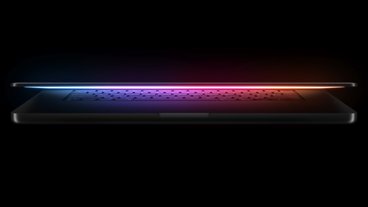


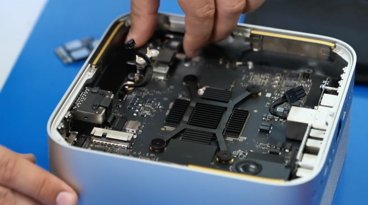









 Christine McKee
Christine McKee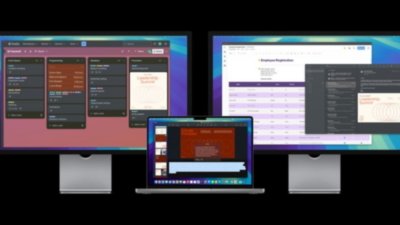
 Charles Martin
Charles Martin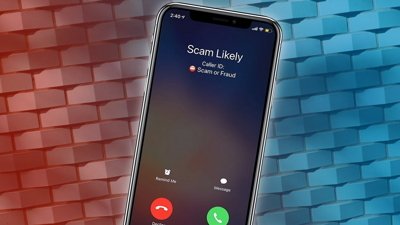

 Oliver Haslam
Oliver Haslam
 William Gallagher
William Gallagher

 Sponsored Content
Sponsored Content

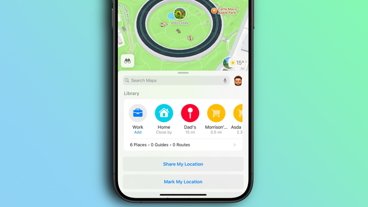
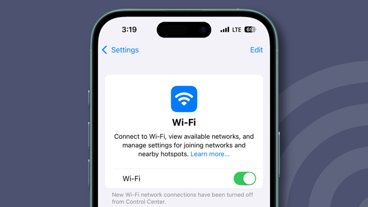






144 Comments
Wow. Isn't that against the principle of open in Google's mind? Google claims the benefit is developers can do what they want with the OS.
Seems like Google is learning that user experience becomes much more important than openness. There are always trade-offs, but keeping the customer happy should be the most important.
So Google is now moving to make its Android platform more like Apple's iOS platform. How ironical.
Wow. Isn't that against the principle of open in Google's mind? Google claims the benefit is developers can do what they want with the OS.
Since google is now God it has redefined what the word "open" means
Remember the word "free" used to mean free before the Internet came along lol
We are living in George Orwell 1984 after all where the elite redefines language for us
All Androids are Open?, but some are more Open? than others.
I can't wait for some of our resident Fandroids to start trying to spin this. "Android is still more Open? than Apple, because...because...Steve Jobs! Control Freak! Walled Garden! You can't just download Darwin and...oh, wait a minute...."